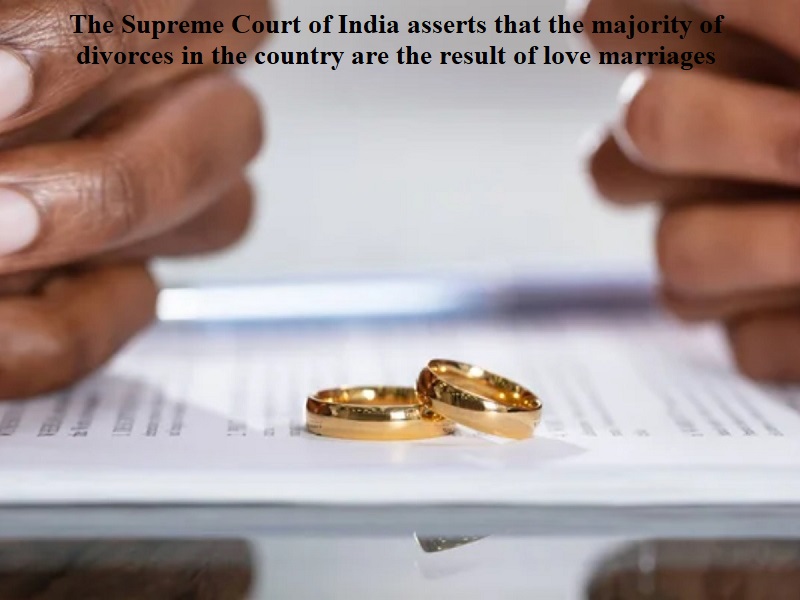
The Supreme Court of India made a statement on Wednesday that could ignite a new debate regarding love marriages in the country. The court asserted that the majority of divorces in India are a result of love marriages. This remark follows a series of previous statements made by the court that were met with discontent, particularly among the younger population.
The comment was made by a two-judge bench consisting of BR Gavai and Sanjay Karol while hearing a transfer petition related to a matrimonial dispute. The counsel representing the case informed the court that the marriage in question was a love marriage.
Justice Gavai remarked, as reported by Bar & Bench, “Most divorces are arising from love marriages only.” Subsequently, the bench called for mediation between the couple.
Earlier this month, the Supreme Court had stated that it can utilize its powers under Article 142(1) of the Constitution to grant a divorce on the grounds of an “irretrievable breakdown” of a marriage, whether through mutual consent or even if one party opposes it.
A five-judge constitution bench headed by Justice SK Kaul clarified that the court must be fully convinced and satisfied that the marriage is “totally unworkable, emotionally dead, and beyond salvation” in order to dissolve it. They emphasized that dissolution of marriage should be the only solution and the way forward.
The court further stated that the irretrievable breakdown of a marriage needs to be factually determined and firmly established. Several factors are taken into consideration, including the period of cohabitation after marriage, the last time the parties cohabited, and the nature of allegations made by the parties and their family members.
During divorce proceedings, other factors considered include the orders passed in legal proceedings, the cumulative impact on the personal relationship, attempts made to settle disputes through court intervention or mediation, and the timing of the last attempt.
The Supreme Court possesses the discretion to dissolve a marriage on the grounds of “irretrievable breakdown” using its plenary power under Article 142(1) of the Constitution. It can also grant a divorce by mutual consent while waiving the mandatory 6-month waiting period specified in the Hindu Marriage Act, 1995.

Post Your Comments